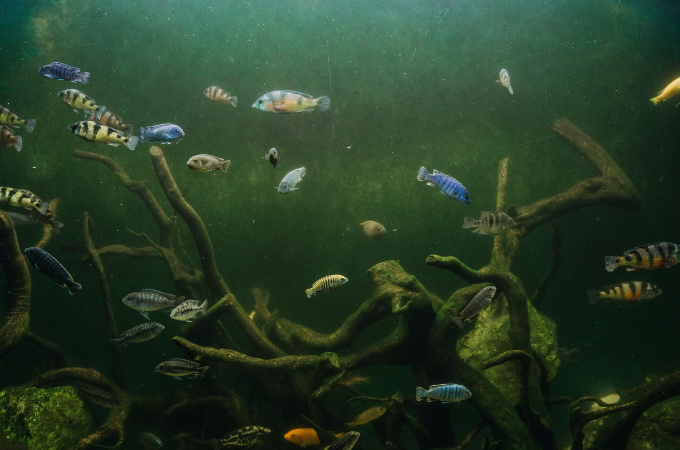
Usman sat on the exposed hefty root of a neem tree with his legs crossed and his raffia hat draped over his face. The after-rain wind blew cold air through his blue and white jallabiya, rain droplets falling from the lush leaves above him with each movement. Usman sits here every day, to soliloquy and rearrange his plans. This is the place on the outskirt of his small town where only the birds dare to interrupt him, not with cruel nuisance but with their melodious cry. A song so beautiful that it often left him in a deep slumber. It was this sleep Usman was about to fall into before his friend, Iliya, pushed his legs. Usman startled awake.
“My friend, so you’re here,” Iliya said.
Usman looked up at his friend with eyes the color of lemon before he said, “where else will a jobless man go?” Iliya smiled and sat on a root next to Usman. The wind blew and more water droplets fell on both men. Iliya rubbed the water off his forehead.
“But you’re not entirely jobless,” Iliya retorted. He waited for a reply but when none came, he continued, “anyway, that’s not why I’m here. I’ve found a job for us.” Usman enlivened by this news squatted on his toes before his friend like a child enticed by the candy from his mother.
“It’s as if you know what’s disturbing me! You know people are becoming wiser by the day,” Usman said, excitedly.
“But look, Usman, this job is not like the usual pickpocket work we engage in—it is more dangerous and requires we carry guns.”
Usman’s smile melted off his face, he felt the cold wind between his armpit and for the first time, saw the little grey hairs on his friend’s beard.
“What kind of job is this?” he asked, looking directly at his friend’s eyes.
“Some people are willing to pay us over five hundred thousand naira just to pick up guns, go to a distant village and chase out helpless villagers, rustle their cattle, sell it and get paid for our work,” Iliya explained. “So, are you in?”
A short silence.
“Yes, I’m in.” Usman said, nodding his head.
“Good, meet me tomorrow morning at my place.” Iliya instructed.
That night sleep escaped Usman, he laid on his bed and thought about all the things he could do with the money he was about to get. He even made a list, bottom-up from the most important. He would buy a Haojue, the white one, only the white one; he liked machines colored that way. He would also buy himself some more clothes, expensive ones too. Then he would definitely marry Laure, it’s long overdue for him to do so. These thoughts kept him awake, and the mosquito whining complimented them.
They went on bikes, about fifty of them all armed. Three persons conveyed on each bike, strapped with their assault rifles and masked to the eyes. On his bike, Usman sat in the middle and Iliya behind him, both men anxious of what they considered to be their actual robbery—every pocket or bag they had ever cut were a means to survival. They drove through a narrow road between scrublands with a few large and small trees here and there. Usman observed how a couple of bush weasels chasing after each other immediately ducked back into their hole when they saw the troop of men. He was still processing the display in his head when they stopped in sight of their target village. The moos from the village reached them. It is a good sign, they thought—there will be plenty of cattle to take with them. On instructions by the lead man, they charged toward the village shooting first at the sky.
As the scattered villagers ran into their houses, Usman felt his stomach grumble. Guinea fowls took flight from trees, some fell to the ground disoriented. The passengers jumped off their bikes, this time shooting at naked men who walked out of their houses to stare at them with bloodshot eyes. Usman saw how one of the naked men strangled down his gang member, and despite the shootings, he heard the man’s neck crack causing all the men to take their heels.
The villagers gave chase, dispersing Usman and the rest of his gang. Every man was for himself. Through the bushes Usman ran, his heart beating a rumble, he could almost feel it punching his ribcage. He ran into a maize farm, shoving aside and bumping into cornstalks, turning once in a while to look over his shoulders. But he could still hear the naked men behind him, their heavy breath as terrifying as they looked with coarse voices. Soon he got tired of his rifle, removed it from his shoulder and dumped it on the ground.
It was a murky river, shallow with high magmatic rocks that caused Usman to fall. He sat underneath the river, his hands clutching a stone and holding tight his breath.
5 seconds.
15 seconds.
30 seconds.
Usman was calm in his composure, at least for his physical body. His mind, however, a quagmire of contemplation. He thought about a lot of things that could happen to him. If by chance he survives, he would never go on such a venture again. He would apologize and tell Alhaji Bala that he was the one who stole his phone and not the innocent fellow he had slapped in the chaos of the market and got arrested. He would also pray for forgiveness from all the other people he had once taken something from, and he would dedicate his life to the mosque as a new man who would not trespass. But he also kept thinking about how he would eventually get tired of holding his breath, emerge from the water and get killed by the villagers. He would die. He would die.
50 seconds.
65 seconds.
The villagers chasing Usman, now searching the riverside, examined the rifle they had picked on their path.
80 seconds.
Usman let go of his first volume of oxygen. He reclined and fell on his back into a horizontal position. One of the villagers, the one armed with Usman’s rifle saw the air bubbles burst on the surface of the river and he shot thrice into the water. Boom, Boom, Boom. The water shattered as speeding bullets hit the bottom of the river. Birds from nearby trees flew into the sky below dark clouds.
“What’s that for?” one of the villagers asked.
“I thought I saw a fish in there,” the shooter said.
95 seconds.
Usman’s chest began to contract, his face pale with a grimace, and he involuntarily jerked his head back to the tide. His nasal cavity hurt; he heard the water hum. His eyes burned, and through the unclear, shady current he saw the image of his dead uncle, smiling, beckoning at him. He saw death.
He had a final thought of what could happen that can lead to his death, but then quickly emerged from the water with a loud inhale of air, pure oxygenated air into his lungs—a Muslim should not die of suicide, and not on his way to maraud, he thought at last. He coughed out water before he took a good look at his surroundings. The villagers were gone.
“Oh, saura kadan!” he exclaimed.
He crawled his way out of the river. When he stood his legs ached him, and he realized how long he had been running. He let himself run again, through the high rocks and into an open field of shrubs. He ran. He ran for a few more hours before he sighted a red bright light of a network mast from his town painted in the evening’s blur. He ran. He ran.


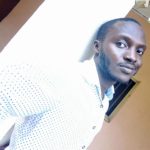
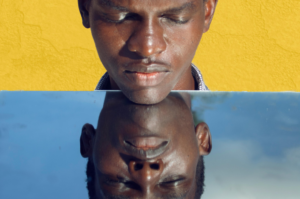


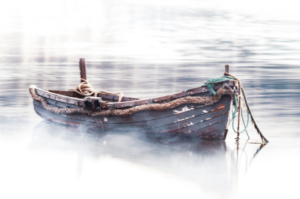
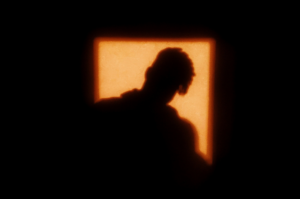
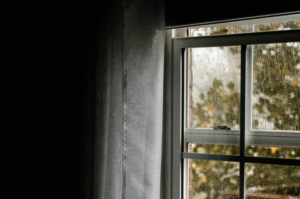

COMMENTS -
Reader Interactions